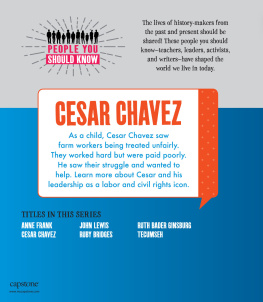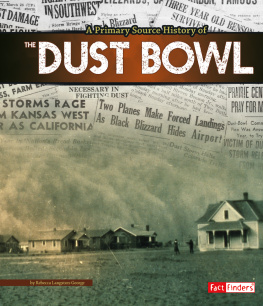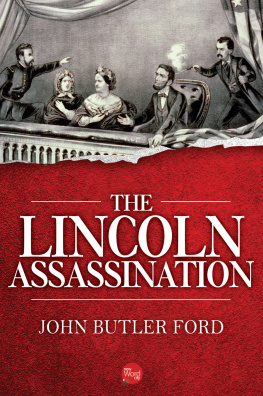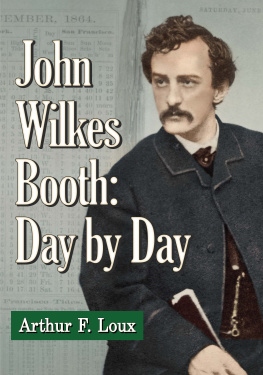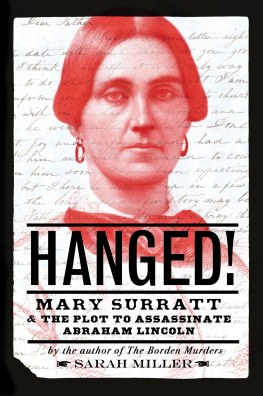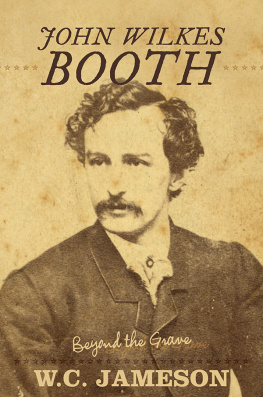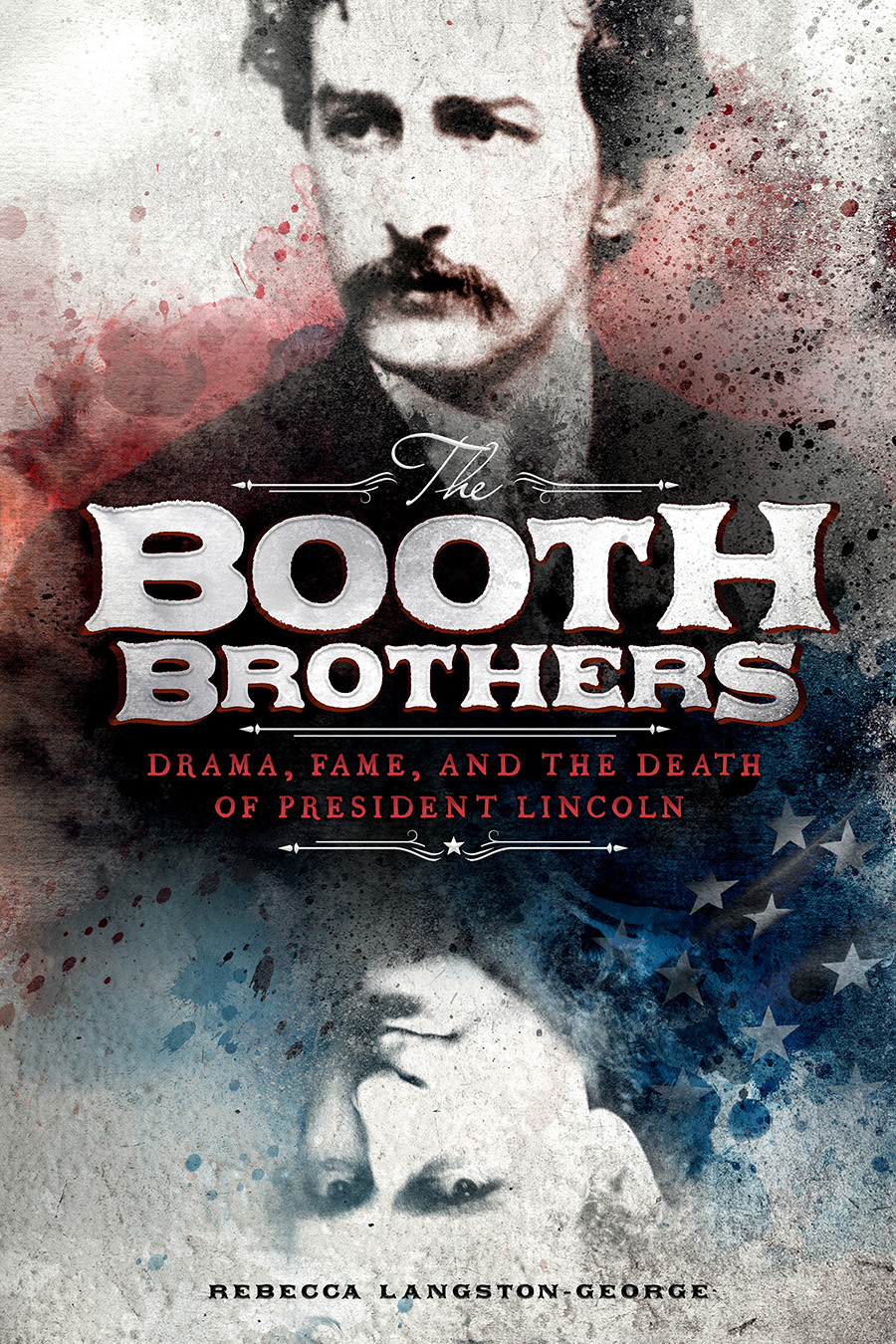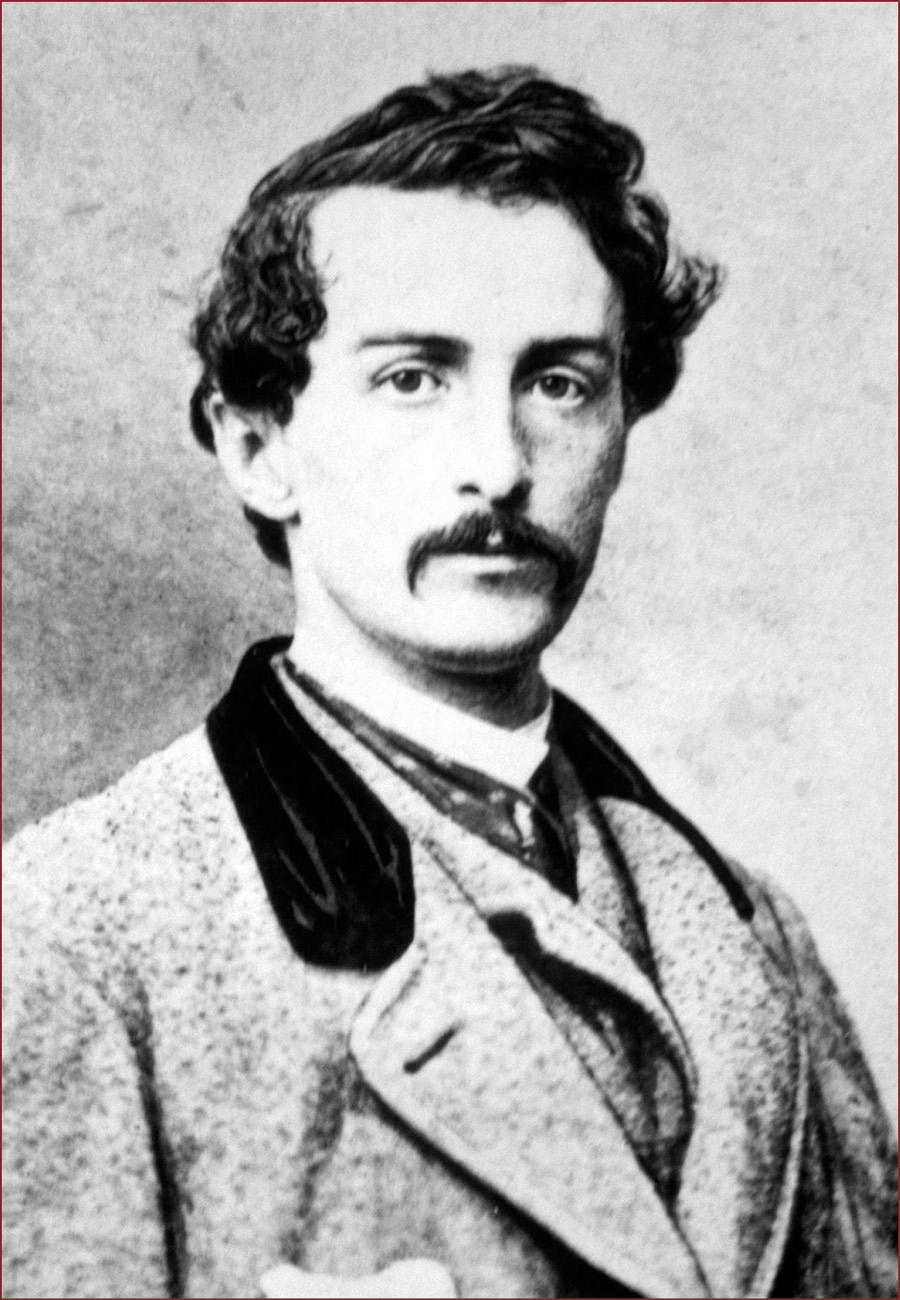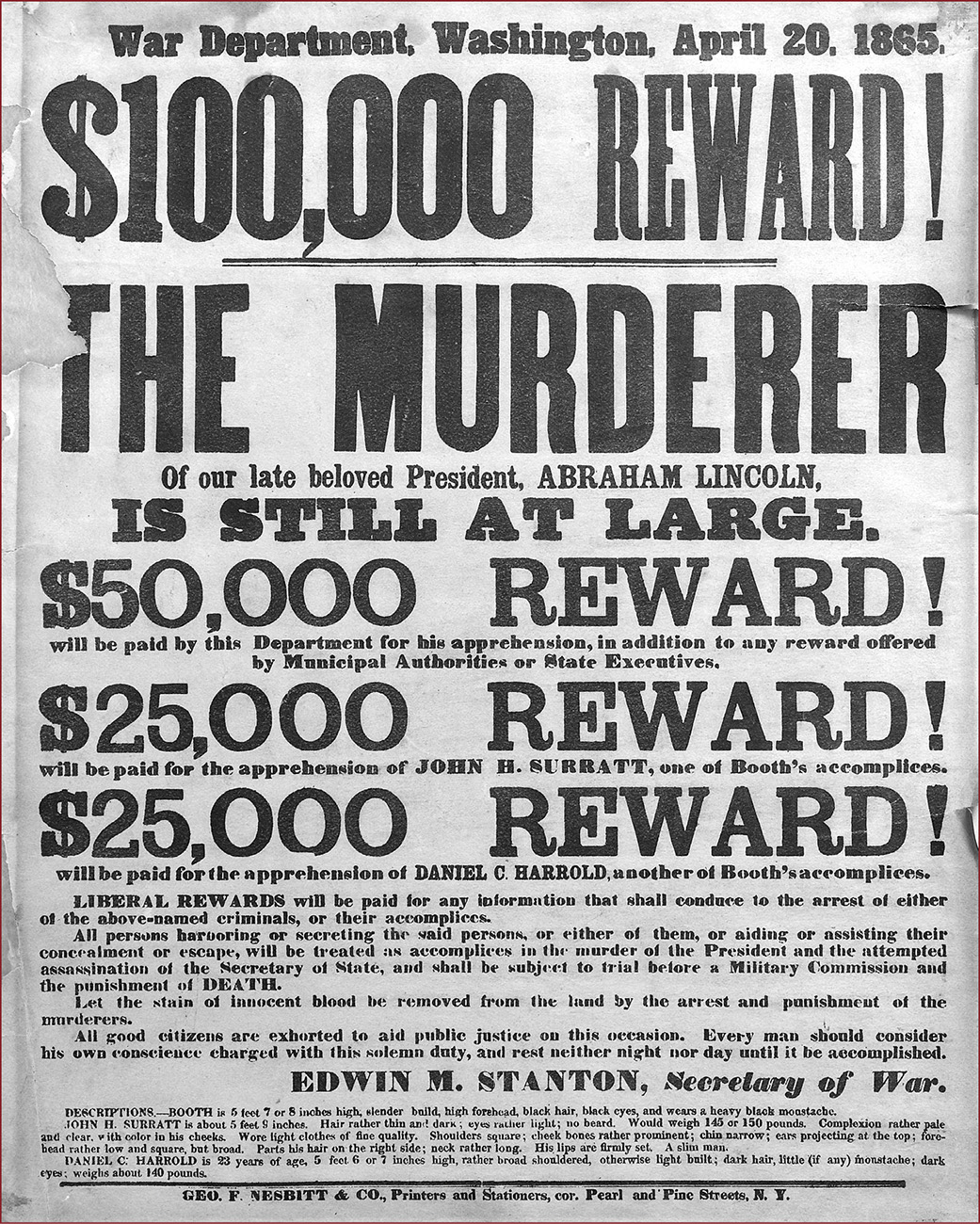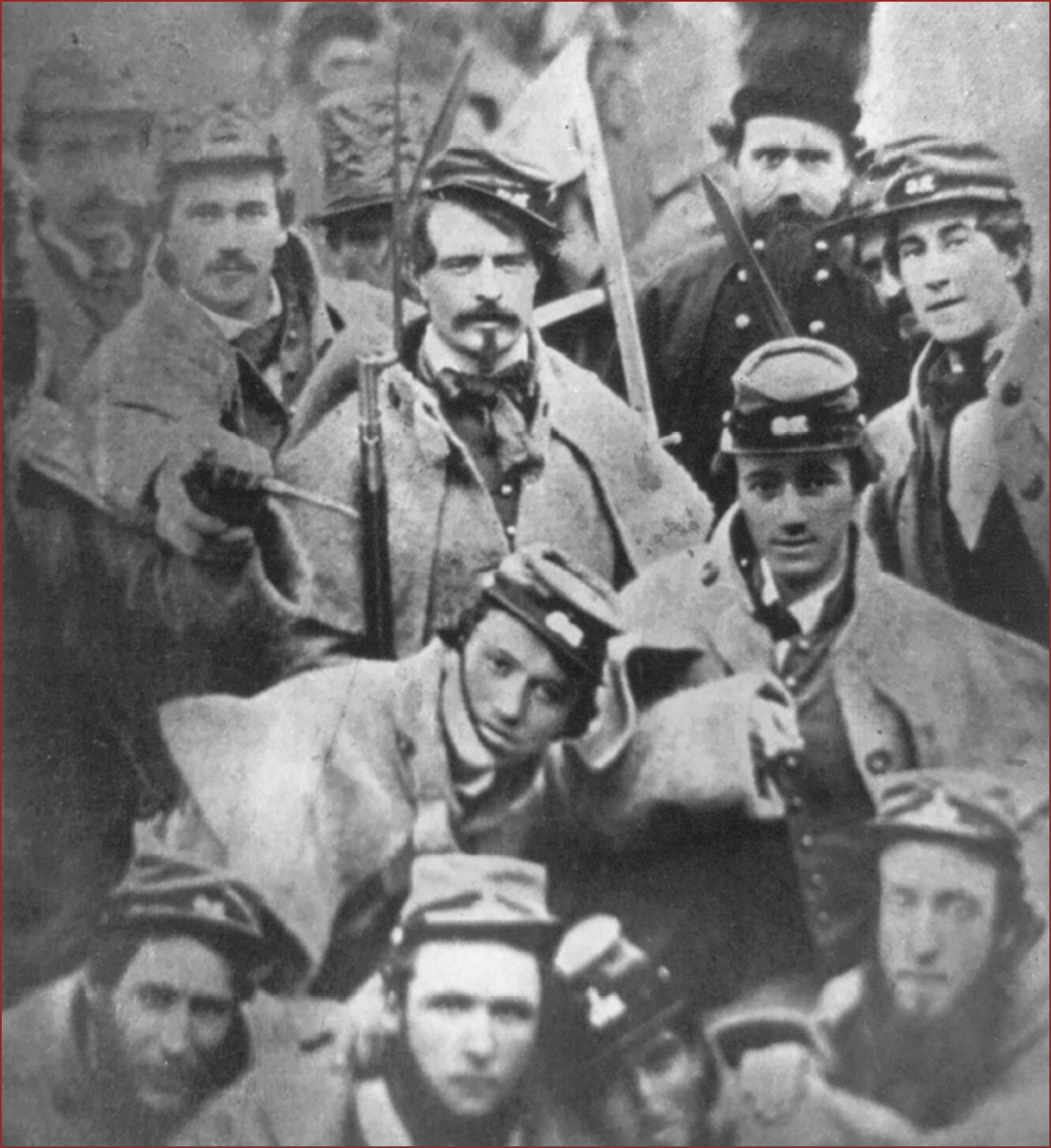CHAPTER 1
A WANTED MAN
T he cold night sky shrouded the barn in inky darkness. Gusts of chilling wind passed through the slats of the barn walls, rustling the frames used to hang drying tobacco leaves inside. Indeed, it was cold that long-ago morning, April 26, 1865, but the man lying in the hay on the floor dared not risk lighting a fire in the barns stove. Wounded and weary from travel, his body may have cried out for warmth, but a fire was a chance he did not take. Other, more prudent men might have feared a stray spark would ignite the hay, but he had never been the cautious sort. At the moment, he feared the smoke and light from a fire could bring something more dangerous the men who were hunting for him.
He had been on the run for 12 days. Along with his companion, there was scarcely a newspaper in the country that hadnt splashed his act across its front page.
John Wilkes Booth had enjoyed a successful career as a stage actor, but he became consumed by resentment and anger during the Civil War.
To Booths great surprise, however, the newspapers had not painted him as a hero, as he had anticipated. Certainly, he had not expected praise from Northern papers. But to be declared a criminal in his beloved South was a wound more painful than the fractured leg that had been slowing him down.
Many miles away, Johns older brother Edwin was in hiding of another sort. Edwin Booth ranked among the countrys best-known actors, and he was accustomed to seeing his picture in the newspaper. He was no stranger to being the subject of gossip. But his brothers actions had put his entire family under criminal suspicion. Their older brother Junius, known as June, and John Clarke, their brother-in-law, had been jailed. They were suspected of helping John Wilkes Booth plan his crime. Edwins scheduled performances were all canceled. Booth a last name that had drawn great crowds of paying customers into theaters had become overnight a lightning rod for hatred, gossip, and threats.
Edwin stayed in seclusion, hoping to avoid both the public and the newspaper reporters. He believed he might be taken into custody at any time. He worried for his mother.
After reading in the newspaper of her brothers crime and then, only minutes later, watching her husbands arrest as a suspected accomplice, his pregnant sister, Asia Clarke, had fallen ill. Surely Edwin, along with the rest of America, wondered where John Wilkes Booth had gone. Had he committed the crime of which he was accused? Had others helped? Edwin and his family members likely shared one worry that their fellow citizens did not. Was their brother all right?
Feverish and aching in the cold, dark barn, John Wilkes Booth badly needed rest. He knew he would have to move on when the sun rose. Clearly, his latest host, Mr. Richard H. Garrett, had become suspicious. Initially John had passed himself off as a wounded Confederate soldier trying to make his way home. But Booth hadnt played that part effectively. He was too well armed and too eager to reach for his guns when Union soldiers passed by. Also, Garretts son John had heard that soldiers were scouring the area for an assassin. What would happen if they should find such a man in his guest room? After dinner John Garrett told his guest he was no longer welcome in his house, but he offered to take Booth and Herold elsewhere in the morning.
And so, denied the soft, warm bed hed enjoyed the last few nights, John lay on a pile of hay in the old tobacco barn with his leg throbbing and his pride wounded. It was after 2 oclock in the morning when he jerked awake. The sound of horse hooves fell on his ears. The night air came alive with whispers and footsteps. A dim flicker of candlelight bobbed between the barn slats, growing brighter and closer. Union soldiers were coming.
John Wilkes Booth pulled out his revolver. He and David Herold dashed for the barn door. But, fearing Booth and Herold would steal their horses, Garrett and his sons had trapped them. The door was locked on the outside. Furious, Booth and Herold tried kicking some barn slats loose enough to crawl under. But there was no escape for the most wanted man in America. President Abraham Lincolns murderer had finally been found.
Rewards totaling $100,000 were promised for the capture of John Wilkes Booth and two others involved in the assassination plot. Booth had expected to be a hero in the South, and he was dismayed when even Southern newspapers labeled him a villain.
CHAPTER 2
WITNESS TO HISTORY
S ix years earlier, John Wilkes Booth had a different experience with soldiers. He played one not on the stage but in a real-life drama prior to the Civil War. John, like his two older brothers, had taken up acting. They were all sons of the deceased Shakespearean actor Junius Brutus Booth, and acting ran in the Booth family blood.
During a November 24, 1859, rehearsal at a theater in Richmond, Virginia, for the comedy Timothy Toodles, John stepped outside to take a break. The streets were filled with uniformed soldiers waiting to board a train to Charlestown, Virginia. They had been called to duty to maintain order at an execution scheduled for December 2.
The condemned man was slavery. Brown and his followers had tried to gain control of federal weapons stored in the town of Harpers Ferry, Virginia. He planned to arm slaves and lead them in a revolution to abolish slavery. But the plan had been foiled. Brown and six of his followers were captured by soldiers, and Brown was the first sentenced to hang. The governor feared Browns supporters might show up at the execution to free him by force, so he had called up 1,500 military men to act as guards.
Outside the Richmond theater, John Wilkes Booth struck up a conversation with the waiting soldiers. Upon hearing their destination, Booth was eager to join them. He claimed he wanted to find out what it felt like to be a soldier. Given his political beliefs, he may also have been keen to see an abolitionist swing by the neck.



